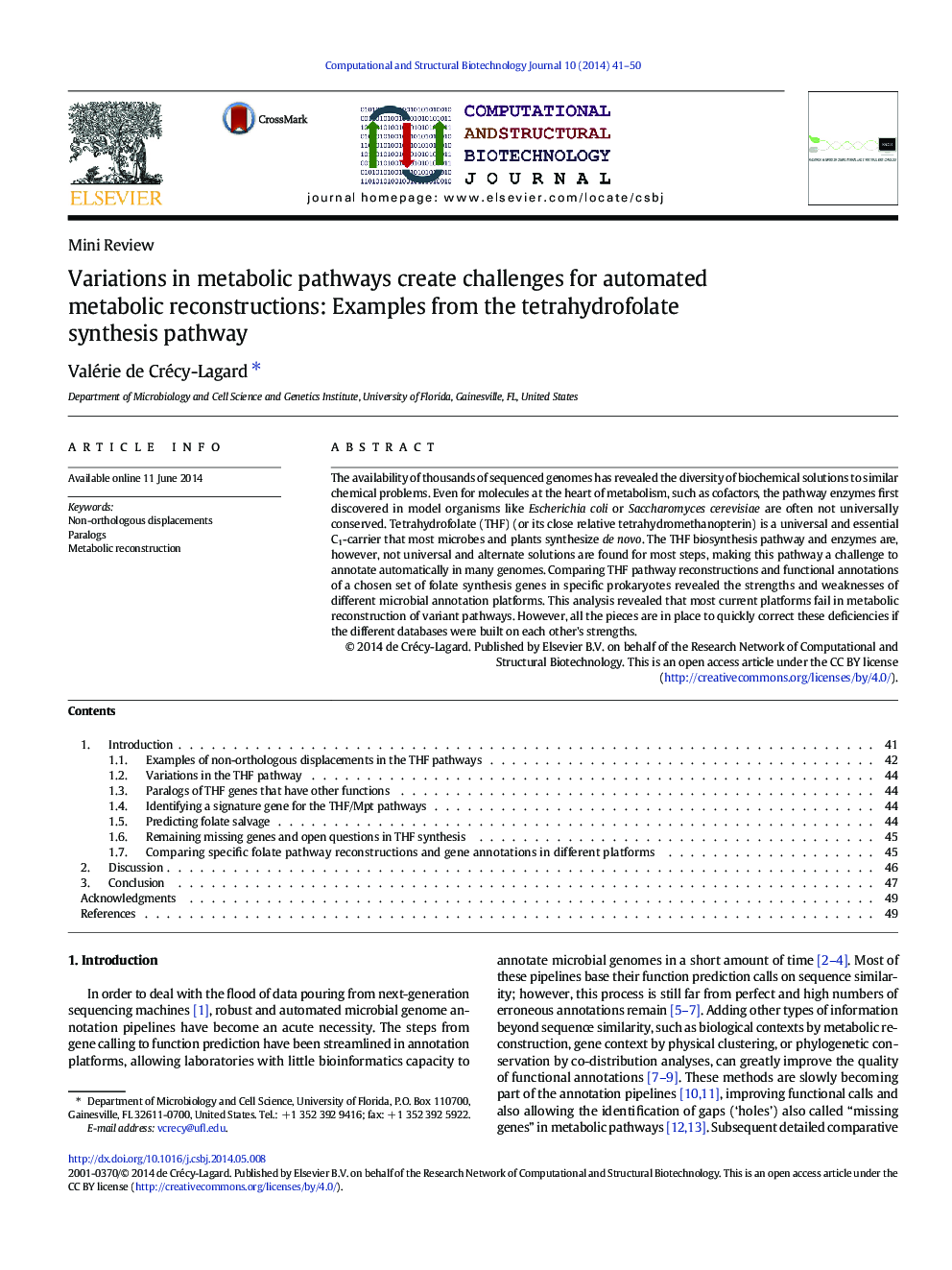| Article ID | Journal | Published Year | Pages | File Type |
|---|---|---|---|---|
| 2079231 | Computational and Structural Biotechnology Journal | 2014 | 10 Pages |
The availability of thousands of sequenced genomes has revealed the diversity of biochemical solutions to similar chemical problems. Even for molecules at the heart of metabolism, such as cofactors, the pathway enzymes first discovered in model organisms like Escherichia coli or Saccharomyces cerevisiae are often not universally conserved. Tetrahydrofolate (THF) (or its close relative tetrahydromethanopterin) is a universal and essential C1-carrier that most microbes and plants synthesize de novo. The THF biosynthesis pathway and enzymes are, however, not universal and alternate solutions are found for most steps, making this pathway a challenge to annotate automatically in many genomes. Comparing THF pathway reconstructions and functional annotations of a chosen set of folate synthesis genes in specific prokaryotes revealed the strengths and weaknesses of different microbial annotation platforms. This analysis revealed that most current platforms fail in metabolic reconstruction of variant pathways. However, all the pieces are in place to quickly correct these deficiencies if the different databases were built on each other's strengths.
